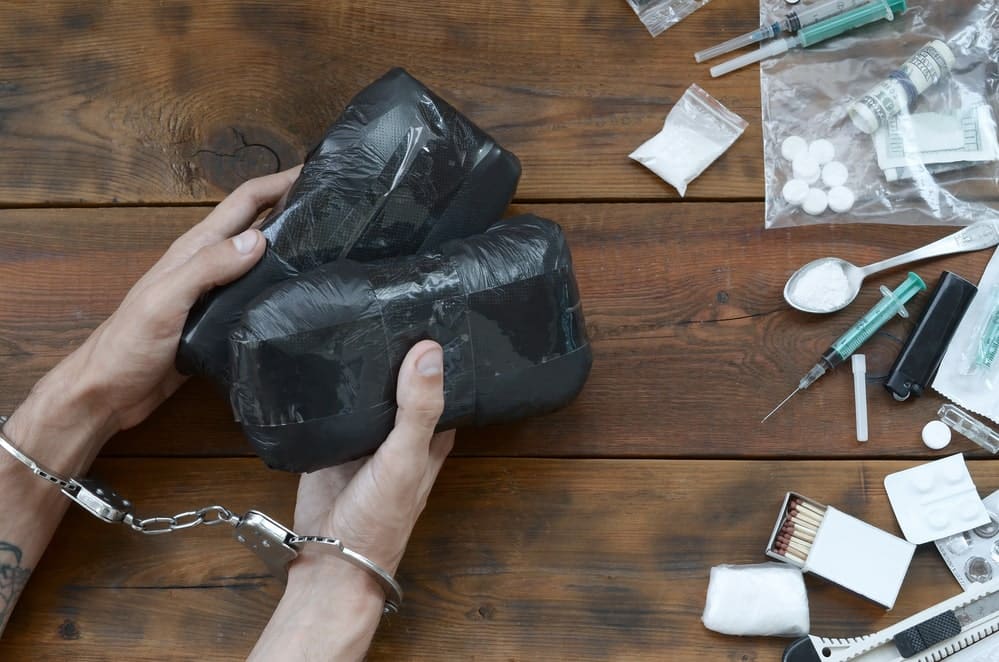Search and seizure rules are enshrined in the U.S. Constitution and are intended to discourage the government (and law enforcement officials) from overstepping their powers and invading people’s privacy. They apply to every citizen and legal resident universally and equally.
Unreasonable searches are also prohibited under the state constitution in Maine.
However, this doesn’t prevent individuals’ rights from regularly being violated. Drug crime cases are prime examples where this happens quite frequently.
For individuals charged with drug crimes in Maine, the consequences can be dire. If, however, an illegal search and seizure was performed, the charges may be dropped, the case may be dismissed, or the defendant may be acquitted in court.
Let’s consider what constitutes illegal search and seizure for drug cases in Maine.
Call 207-571-8146 or contact us online to schedule a consult with one of our highly skilled criminal defense & OUI lawyers, serving Southern Maine, today.
Table of Contents
Warrant vs. no warrant during search & seizure
To ensure a “reasonable” amount of personal privacy for individuals in the U.S., the police must have a warrant or an obvious circumstantial justification for performing a search.
Generally speaking, even if you’re suspected or accused of committing a drug crime, law enforcement cannot simply search your house, car, or personal property. A search warrant is usually required if an officer wants to do anything more than an over-the-clothes frisk for a weapon.
The warrant must apply to a specific location and have a stated scope. Law enforcement must closely abide by the terms for the search to be legal.
So, if the warrant applies to a search of a car but not a house and key evidence is found in the garage near the car, it may not be admissible in court. Drug crime cases can fall apart unless the terms of the warrant are followed to the letter.
What are the exceptions to the warrant requirements?
There are several exceptions to the warrant rule, where a warrantless search can be legally conducted by law enforcement.
These situations include:
- If there is “probable cause” to believe that someone is in danger.
- If a lawful arrest has been made and a search is required to locate weapons and/or prevent the destruction of evidence.
- If the search or seizure is of objects in plain view and the officer has a legal right to view the objects.
- If an officer searches a vehicle with probable cause of contraband inside (which would be moved before a warrant can be obtained).
- If other “exigent” circumstances make getting a warrant impractical or impossible, e.g., a life is at risk, or a crime is actively being committed.
- If the individual voluntarily waives his/her Fourth Amendment rights.
Call 207-571-8146 or contact us online to schedule a consult with one of our highly skilled criminal defense & OUI lawyers, serving Southern Maine, today.
Probable cause vs. reasonable suspicion
Search and seizure laws are complex but can be key to a successful defense of criminal charges involving drugs. An experienced criminal defense lawyer will assess drug cases with a careful eye on how evidence was obtained.
The terminology used can be a little confusing. Probable cause and reasonable suspicion are similar on the face of it but, legally speaking, the differences can be critical.
For a legal search and seizure, an officer must have probable cause that the person:
- Will soon commit a crime, or
- Is presently committing a crime, or
- Has committed a crime
…. and that evidence will be found in the place to be searched
Probably cause requires that the officer has a logical belief supported by facts and circumstances that a normal person could understand and agree to. An example would be hearing people shout out for help or seeing a person flee from a business premises with an alarm sounding.
Reasonable suspicion of a crime taking place or about to take place is based on the officer’s experience and training in law enforcement.
For instance, the officer may have been trained to identify the signs of illegal drug use and so, when he/she sees someone acting suspiciously while walking the streets at 3 a.m., it could be reasonable for the officer to stop and question the individual. However, a full-blown search would only be legal if the officer has clearer probable cause of a crime having been committed.
What is “plain view seizure”?
Plain view seizure is the valid seizure of evidence if a law enforcement officer sees something illegal in a place where he/she is legally permitted to be.
If, for instance, an officer is invited into your home and he/she subsequently finds illegal drugs there, responding by seizing the drugs would constitute a legitimate plain view seizure.
However, if you don’t invite the officer in and there is no search warrant or probable cause, any evidence he/she finds would likely not be admissible in court as it would constitute an illegal search and seizure.
A recent search & seizure case in Maine…
In a recent case in Wayne, ME, a search warrant was approved by a judge after a deputy served a protection order with a firearm relinquishment order on a residence there.
The person served told the deputy there were no firearms at the residence because he was a “convicted felon.”
Upon execution of the search warrant, law enforcement found and seized 11 firearms, as well as some quantities of suspected illegal drugs, such as fentanyl, methamphetamine, mushrooms, and cocaine base.
This resulted in the arrest and charging of two individuals for the following crimes:
- Aggravated trafficking of scheduled drugs
- Unlawful furnishing of scheduled drugs
- Unlawful possession of scheduled drugs
- Illegal possession of firearms
- Criminal forfeiture of property
- Criminal simulation
If you’re involved in a drug case and concerned about illegal search and seizure, calmly and politely refuse consent to search without a search warrant and contact a criminal defense lawyer as soon as possible.
For experienced legal help with any drug crime, call the Maine Criminal Defense Group at 207-571-8146 for an initial case evaluation.
Call 207-571-8146 or contact us online to schedule a consult with one of our highly skilled criminal defense & OUI lawyers, serving Southern Maine, today.
Blog Posts

If you are convicted of a drug crime in Maine, your sentence will depend on four main factors: the type of drug involved (classified into four schedules), the amount of[...]

Any criminal charge for a drug-related offense is a serious matter in Maine,but how consequential the outcomes can get may depend on whether the charge is filed at the state[...]

When most people think of drug crime classifications, they automatically assume it references the worst types of drugs (heroin, cocaine, LSD, etc.). But the word “drugs” also includes lots of[...]

In this post, we will survey Maine’s laws on the possession and trafficking of “scheduled drugs,” and then discuss the classification and possible punishments for drug related crimes. Drug crimes[...]

Drug Trafficking Penalties in Maine: What You Need to Know Being charged with drug trafficking in Maine is a serious legal matter that can result in harsh penalties, including significant[...]

A recent traffic stop in Maine bears a sharp resemblance to a traffic stop that the Supreme Court of the United States had decided was a violation of the Fourth[...]

One of the most polarized and confusing aspects of the American criminal justice system today has to do with marijuana. In the past 20 years alone, 28 states in the[...]

While policy decisions from the White House have been vague or difficult to follow, the new statement on the enforcement of federal drug laws is pretty clear: The Department of[...]

Out of all of the cabinet appointments that president-elect Donald Trump has made, none is more important to the freedom of the people of Maine than that of Senator Jeff[...]

If you have been charged with a crime of possession of drugs, there may be programs available to you to help reduce your sentence or resolve the case more favorably.[...]


